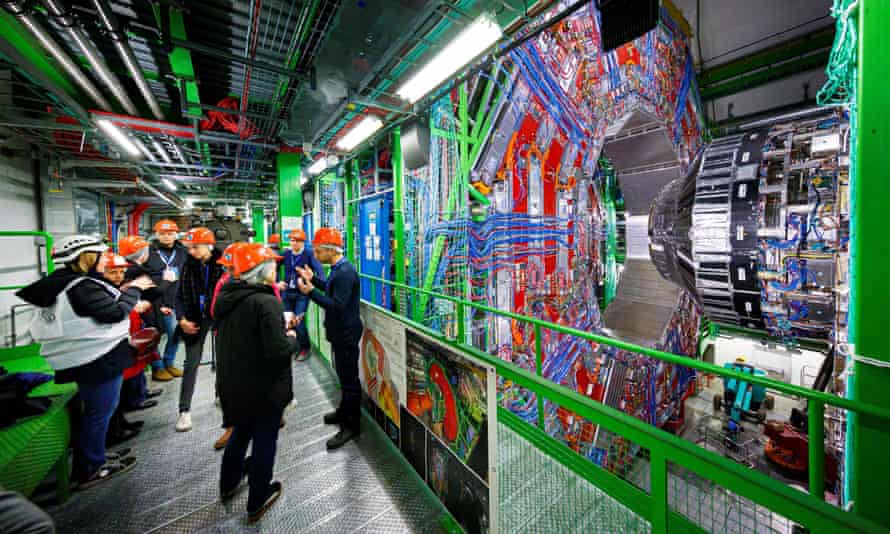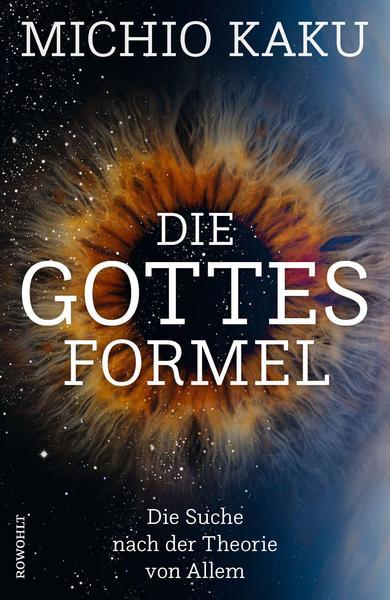How close do you believe science is to accomplishing a theory of everything?
Well, I think we actually have the theory but not in its final form. It hasn’t been tested yet and Nobel prize winners have taken opposite points of view concerning something called string theory. I’m the co-founder of string field theory, which is one of the main branches of string theory, so I have some “skin in the game”. I try to be fair and balanced. I think we’re on the verge of a new era. New experiments are being done to detect deviations from the Standard Model. Plus, we have the mystery of dark matter. Any of these unexplored areas could give a clue as to the theory of everything.
String theory involves a great deal of theoretical physics, fiendish mathematics and mind-boggling abstraction. Do you think the general public is able to grasp the details of this debate?
I think the public is curious as to what the consequences of this theory could be. The universe in some sense is like a chess game and for 2,000 years we’ve been trying to figure out how the pawns move. And now we’re beginning to understand how the queen moves and how you get a checkmate. The destiny of science is to become like grandmasters, to solve this puzzle that we call the universe. There are outstanding questions that the public wants to have answers for. For example, time travel, other dimensions, wormholes. What happened before the big bang? What’s on the other side of a black hole? None of these questions can be answered within the framework of Einstein’s theory. You have to go beyond Einstein into the quantum theory.
How much, do you think, would Isaac Newton understand of your book?
I think he would appreciate it. In 1666 we had the great plague. Cambridge University was shut down and a 23-year-old boy was sent home, and he saw an apple fall on his estate. And then he realised that the laws that control an apple are the same laws that control the moon. So the epidemic gave Isaac Newton an opportunity to sit down and follow the mathematics of falling apples and falling moons. But of course there was no mathematics at that time. He couldn’t solve the problem so he created his own mathematics. That’s what we are doing now. We, too, are being hit by the plague. We, too, are confined to our desks. And we, too, are creating new mathematics.
Some physicists see the search for an all-encompassing theory as misleadingly reductionist. How is your work received in these circles?
I’ll be very blunt, there’s a split, a split that we haven’t seen for many a decade. I’m reminded of the Solvay Conference, when Niels Bohr and Albert Einstein took opposing view on quantum theory in one of the greatest debates in the history of science. Well, string theory has also created a tremendous amount of interest, as well as a backlash. People say, well, where is the proof? Quite frankly we don’t have the proof, in the same way that Newton did not have the proof of his inverse square law back in 1666. Sometimes, the mathematics and the ideas are ahead of the concrete experimental data. That’s where the Large Hadron Collider comes into play.
The LHC has made headlines recently with its findings on how the beauty quark behaves. Will this have an impact on the theory of everything?
The Standard Model is the theory of almost everything. It works spectacularly well but it’s one of the ugliest theories proposed so far. There’s this avalanche of experimental numbers you have to put in by hand. But in string theory the Standard Model just pops right out. With just a few assumptions you get the entire Standard Model. So the point here is that we need experimental proof and the LHC may give us hints of a deviation in the Standard Model and that’s where this post-LHC physics comes into play.
You’ve been compared to Carl Sagan in your ability to convey complex science in an accessible form. How important is it to reach a large audience?
We had a big shock in the 1990s when we physicists proposed the super collider. It was much bigger than the Large Hadron Collider. It was to be outside Dallas, Texas, but it was cancelled. What went wrong? On one of the last day of hearings, a congressman asked: “Will we find God with your machine? If so I will vote for it.” The poor physicist who had to answer that question didn’t know what to say. We should have said, this is a Genesis machine that will create the conditions of the greatest invention of all time – the universe. Unfortunately, we said Higgs boson. And people said, $10bn for another subatomic particle? And they cancelled the machine.

Do colleagues resent your popular touch?
Let’s be honest, Carl Sagan experienced a backlash when he started to enter the public arena. There was a vote to have him initiated into the National Academy of Sciences and he was denied. The super collider was cancelled because we were in the ivory tower and had no connection with the taxpayer who was footing the bill. And then along comes Stephen Hawking. He generated so much interest and was a real physicist at the cutting edge of science, not a mere “populariser” – the criticism lodged against Sagan. So I think it was humbling. We have to sing for our supper. During the 60s, all we had to do was go to Congress and say one word: Russia. Then Congress would say two words: How much? Those days are gone.
You believe that within a century we will make contact with an alien civilisation. Are you worried about what they may entail?
Soon we’ll have the Webb telescope up in orbit and we’ll have thousands of planets to look at, and that’s why I think the chances are quite high that we may make contact with an alien civilisation. There are some colleagues of mine that believe we should reach out to them. I think that’s a terrible idea. We all know what happened to Montezuma when he met Cortés in Mexico so many hundreds of years ago. Now, personally, I think that aliens out there would be friendly but we can’t gamble on it. So I think we will make contact but we should do it very carefully.
There are many brilliant scientists whose contributions you discuss in the book. Which one, for you, stands out above the rest?
Newton is at number one, because, almost out of nothing, out of an era of witchcraft and sorcery, he comes up with the mathematics of the universe, he comes up with a theory of almost everything. That’s incredible. Einstein piggybacked on Newton, using the calculus of Newton to work out the dynamics of curved spacetime and general relativity. They are like supernovas, blindingly brilliant and illuminating the entire landscape and changing human destiny. Newton’s laws of motion set into motion the foundation for the Industrial Revolution. A person like that comes along once every several centuries.
You describe yourself as an agnostic. Has your research led you closer or further away from the idea of a designer God?
Stephen Hawking said that he didn’t believe in God because the big bang happened instantly and there was no time for God to create a universe, therefore God couldn’t exist. I have a different point of view. My parents were Buddhists and in Buddhism there is Nirvana, timelessness, no beginning and no end. But my parents put me in a Presbyterian church, so I went to Sunday school every week and learned about Genesis and how the universe was created in seven days. Now with the multiverse idea we can meld these two diametrically opposed paradigms together. According to string theory, big bangs are happening all the time. Even as we speak, Genesis is taking place somewhere in the cosmos. And what is the universe expanding into? Nirvana. Eleven-dimensional hyperspace is Nirvana. So you can have Buddhism and Judeo-Christian philosophy in one theory.
-
The God Equation by Michio Kaku is published by Penguin (£16.99). To order a copy go to guardianbookshop.com. Delivery charges may apply
Quelle: The Guardian

